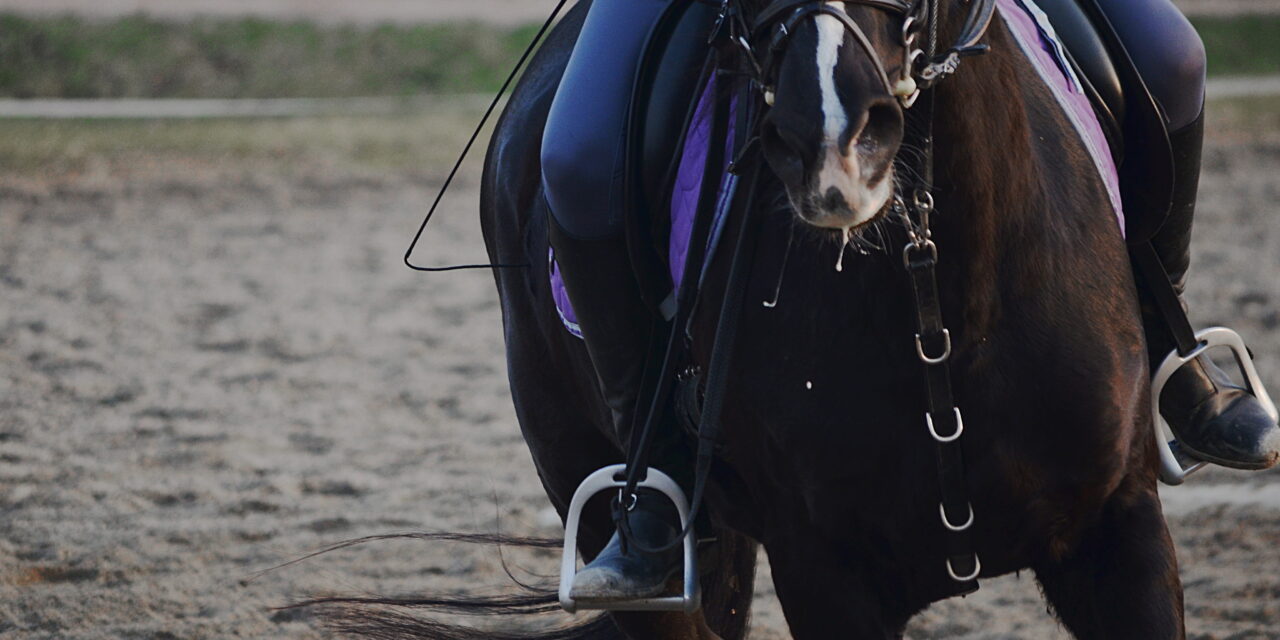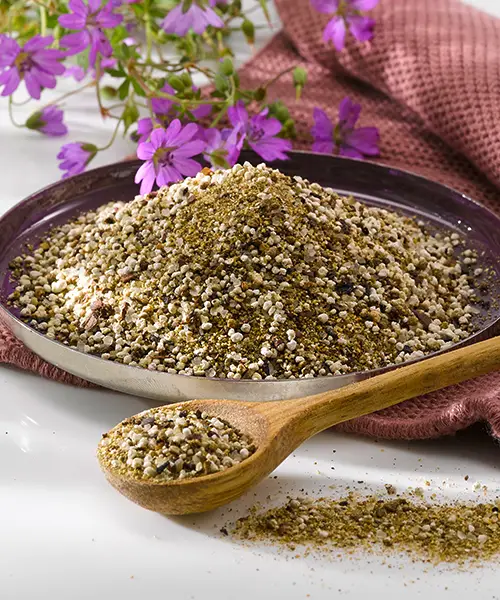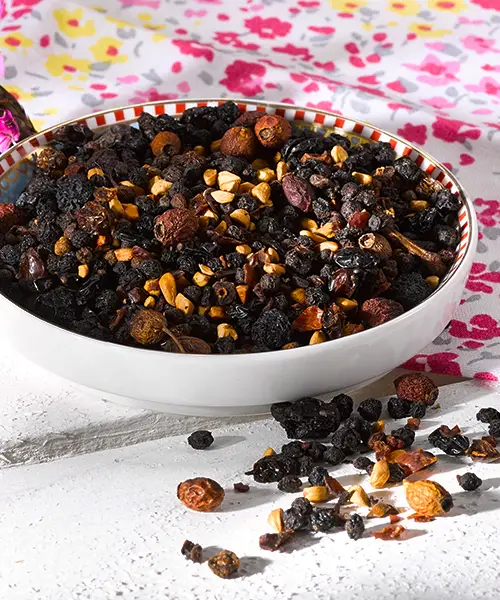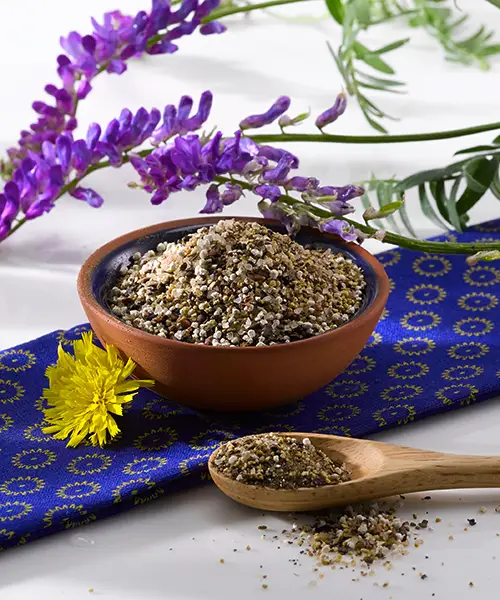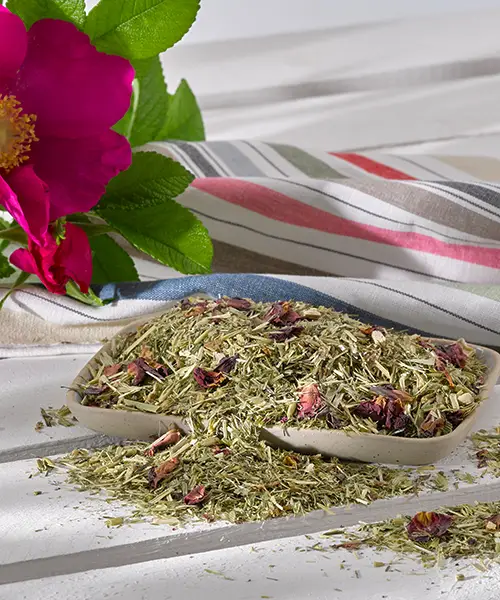As soon as a horse starts coughing, panic sets in for many owners. All too often, what begins as a harmless “cold cough” becomes chronic and leads to lifelong management with a hay steamer, plenty of fresh air, nebulising/steam inhalation and medication. It’s essential to distinguish between an acute infectious episode and a chronic cough.
A cough from a cold?
From autumn through to spring, colds don’t just make the rounds in offices—they sweep through the yards as well. Typically, it starts with a viral infection of the airways, accompanied by increased clear nasal discharge; the horse is listless and low in energy. The irritated airway lining then often becomes a breeding ground for a secondary bacterial infection, leading to a full-blown “cough and cold”. The cough is often productive (i.e., bringing up phlegm), or you notice the horse tries to “bring something up” that seems to be stuck in the airways. Especially after exercise, there is often nasal discharge that can be yellow-green in colour.
Yellow-green mucus is always a sign of a bacterial infection of the airways.
OKAPI Cough Herbs
In such cases, the cough is an important symptom, because the mucus lodged in the airways needs to be brought up. The cough should not be suppressed under any circumstances. Instead, use mucus-loosening remedies. These include OKAPI Cough Herbs, which can be mixed dry into the feed or brewed as a tea and given with a spoonful of honey. Honey soothes the throat in horses just as it does in people. The OKAPI Cough Herbs blend is formulated with herbs traditionally used in folk medicine to help loosen mucus. Once loosened, the mucus can — and should — be coughed up.
Moderate exercise also helps mucus drain from the nasal passages and sinuses, making it easier to cough up. In particularly stubborn cases, inhalation therapy (e.g. nebulisation) can help. Plenty of gentle movement, fresh air and low stress are other key factors for recovery. Don’t bring the horse back into work too soon, or you risk a relapse.
Chronic cough?
In horses with a chronic cough, the airways are usually not clogged with mucus; instead, the mucous membranes tend to be dry, irritated and even inflamed.
A cough reflex is still triggered—especially when dust irritates the already sensitive lining of the airways, as often happens when eating hay (‘hay dust allergy’). Over time, this persistent irritation can develop into true allergies, for example to mould spores or pollen.
OKAPI Secretosan and OKAPI Sulphur Plus
In these cases, it’s not about loosening mucus, but about supporting mucus production. In a healthy state, the airways are coated with a protective layer of moisture that prevents drying and traps dust before it reaches the lining. Here, a different set of herbs helps—such as those combined in OKAPI Secretosan. They soothe and moisten chronically irritated airways. You should also always include a source of organic sulphur, such as OKAPI Sulphur Plus (MSM), because the airways need the amino acid cysteine to build an effective mucous barrier. If sulphur is lacking in the metabolism, there won’t be enough cysteine available, so even with the best herbal support the protective mucus layer may not be adequately formed.
So, OKAPI Cough Herbs (ideally brewed as a tea with a spoonful of honey) for acute colds; OKAPI Secretosan—preferably together with OKAPI Sulphur Plus (MSM)—for chronic, irritative cough. Do bear in mind that even a well-managed horse with a chronic cough can still pick up an acute infection, so keep that in mind when choosing the most suitable herbal blend.
Inhalation (Nebulisation)
In chronic cases, it is strongly advisable to add inhalation therapy. With chronic respiratory problems, chronic sinus infections and mucus pooling in the lower airways often play a major role in perpetuating the inflammatory response. These are most effectively addressed via inhalation—ideally using a highly concentrated saline solution. There are now animal health practitioners, vets and clinics who rent out nebulisers for limited periods, which helps keep costs down; you can also enquire with the manufacturer. Our best results to date have been with the Flexineb model (e.g.
Liquorice extract
For both acute and chronic cough symptoms, you can also give liquorice extract. It has a soothing, anti-inflammatory effect on mucous membranes throughout the body by helping sustain the body’s natural cortisol-mediated anti-inflammatory response. Use with caution in horses with known endocrine issues—such as PPID (Cushing’s) or insulin resistance—and consult a qualified practitioner before use.



